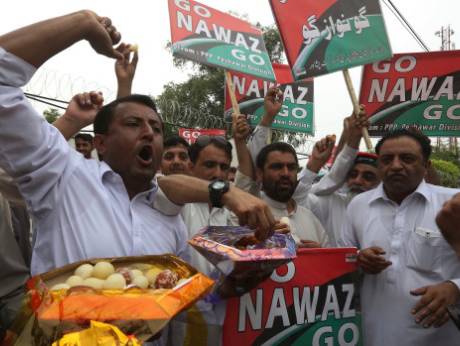Moody’s Investors Service has downgraded Pakistan’s rating to negative from stable. A recent statement released by the credit rating agency stated that the decision to change the outlook to negative was driven by heightened external vulnerability risk as ongoing balance of payment pressures erode foreign exchange buffers. It said that the foreign exchange reserves have fallen to low levels hardly enough for two months imports, adding that and in the absence of significant capital inflows will not be replenished over the next 12-18 months. Concurrently, Moody’s affirmed the B3 foreign currency senior unsecured ratings for the Second Pakistan International Sukuk Co. Ltd. and the Third Pakistan International Sukuk Co. Ltd. “The associated payment obligations are, in our view, direct obligations of the government of Pakistan,” Moody’s Investors Service argued.
In March 2018, International Monetary Fund (IMF) had released the report about Pakistan economic indicators, depicting that all was not well on economic front as boasted by government. Up to January 2018, IMF had expressed satisfaction about Pakistan’s economy; one would not know how it could express satisfaction when Pakistan could not meet targets of fiscal deficit, balance of payments and current account deficit. Pakistan is already in the grip of debt to the extent of $80 billion, and despite the rescheduling of the debt or taking new loans to pay back the old loans, one day these loans have to be paid. Pakistan would find itself in the vicious circle; and would continue to take more loans to pay back the old loans. Of course, IMF would ask to increase gas and electricity charges to the detriment of consumers.
It means that Pakistan would not be able to compete with India and Bangladesh as their gas and electricity tariffs are 40 per cent less as compared with Pakistan. Pakistan has devalued its currency by 15 per cent during the last six months. Of course, exports have increased, but at the same time imports have become expensive because weak rupee. Therefore, more loans would have to be taken to meet the fiscal deficit and adverse balance of payments, meaning a phenomenal increase in debt servicing and as a result increase in fiscal deficit. To avert the economic disaster, the government must show zero-tolerance to corruption, tax evasion, wastages and mismanagement in public sector enterprises. It should learn to live within its means and reduce the non-development expenditure by curtailing perks and privileges of cabinet members and parliamentarians.
As regards trade deficit i.e. excess of imports over exports, our industrialists and exporters are handicapped because of higher input costs like electricity and gas charges. The government should therefore reduce the gas and electricity charges to reduce cost of production. On their part, the trade and industry should resort to aggressive and innovative marketing policies to enhance exports; look for non-traditional markets; and try to increase the exports of value-added products to reduce the trade deficit. Unfortunately, the IMF does not give suggestions or advices that really matter.
For example, there seems to be no pressure by the IMF to immediately bring agriculture sector into the tax loop, perhaps because majority of the parliamentarians belong to landed aristocracy. Some industrialists have also gone into agricultural sector to take advantage of exemption on agricultural income, and use it to convert black money into white money. It means that the IMF would not like to annoy the ruling elite. It has to be mentioned that agriculture contributes about 23 per cent to the GDP, but does not contribute to the exchequer in the form of taxes even to the extent of 5 per cent.
- Latest
- Trending




